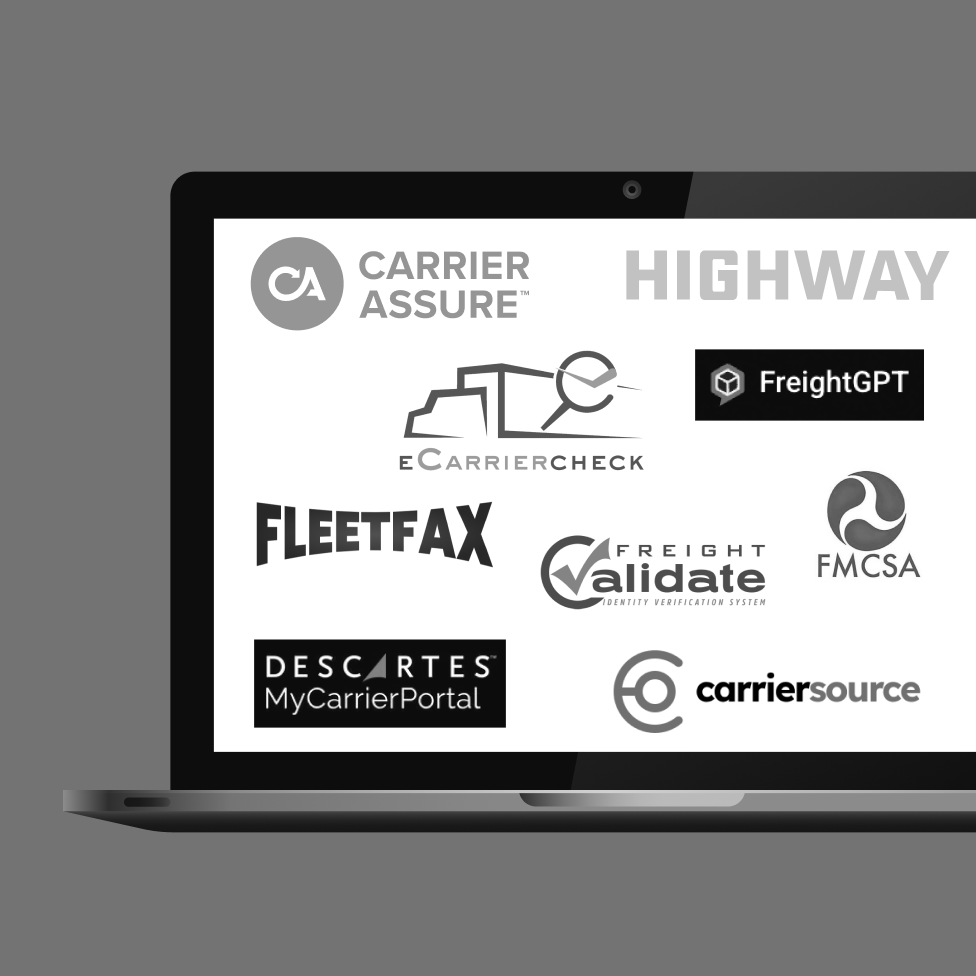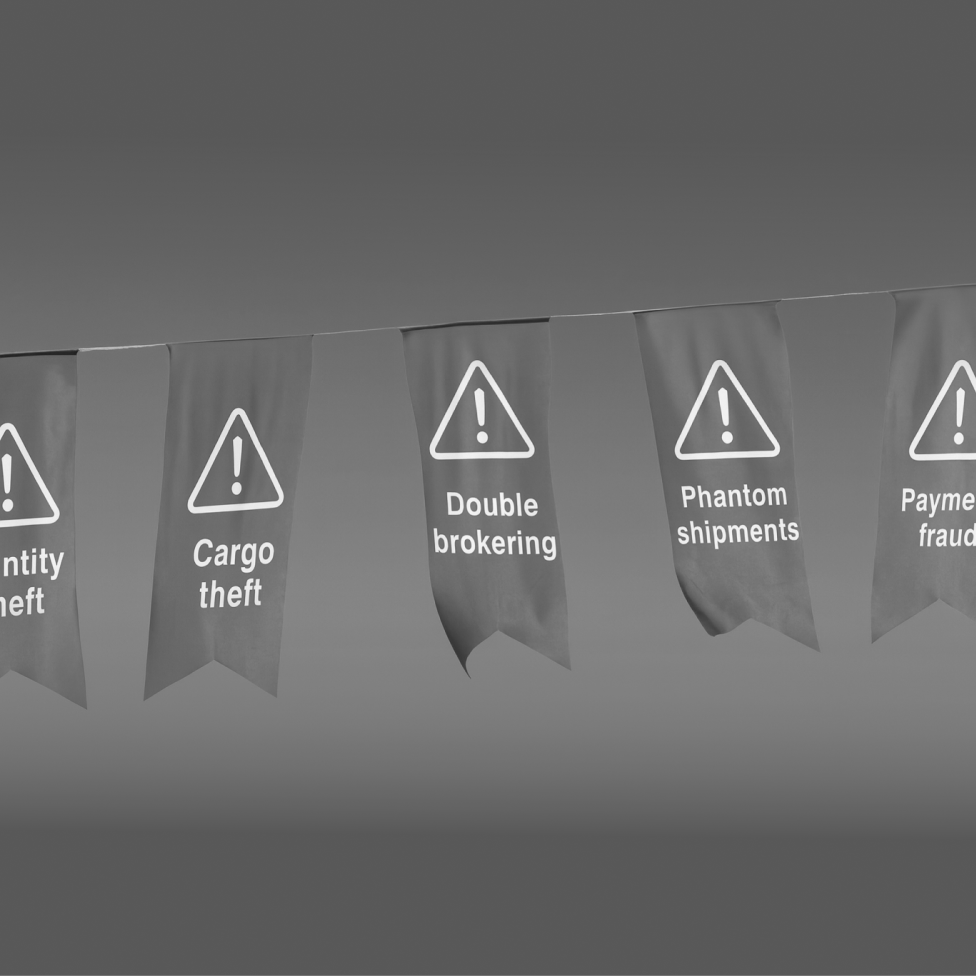We are in a trucking recession and its impacting the whole industry.
Consumer demand is lower and profits are thin. And unfortunately, the freight industry outlook for 2024 does not look ideal.
Shippers remain in control with more market power than they did in 2022 causing carriers and brokers to negotiate contracts to maintain volume.
With the right strategies in place, you can weather the down market and come out even stronger on the other side.
In this blog post, we'll cover 10 things that you should keep in mind during the trucking recession. From staying up-to-date on market rates to embracing technology, these tips can help you navigate the challenges of a loose market and come out on top. So if you're a freight broker looking to stay afloat, read on for some things to keep top of mind.
1. Stay informed of market changes
Economic conditions can have a significant impact on demand for shipping and transportation services. This can affect the rates that you are able to negotiate with carriers, as well as the availability of capacity.
By staying informed about market conditions, you can make more informed decisions about which carriers to work with, lanes to prioritize, and how to price services.
There are several ways to stay up-to-date and keep a pulse on the market.
- Monitor industry news and trends: Follow news sources like FreightWaves, The Freight Coach Podcast, Transport Topics, and Truckers Forum.
- Use data and analytics tools: Software tools help you track market conditions, such as supply and demand trends, carrier rates, and shipping volumes.
- Monitor business performance: Key business metrics like average days sales outstanding and fastest or slowest paying customers can give you a snapshot of business health. With regular monitoring, you can make any necessary adjustments to your operations.
- Talk to carriers and other industry partners: Proactively engage carriers and other partners in industry discussions to gain valuable insights and perspectives on market conditions.
2. Diversify your customer base
Diversifying your customer base is not only good business advice, but critical in today’s market.
Relying heavily on a single customer or a small group of customers can put your freight brokerage at risk. If that customer goes out of business or significantly reduces their shipping volume, it could have a major impact on your revenue and cash flow.
A diverse customer base provides your freight brokerage with a more stable source of revenue and you are less reliant on any one customer or even industry. This can help to ensure the long-term viability of your business.

3. Don't be afraid to negotiate.
During economic downturns, demand for shipping and transportation services decline, which can lead to excess capacity in the market. This can put downward pressure on rates and hurt your bottom line.
Contracts and rates put in place during different freight conditions should be re-evaluated during a freight recession. Are there new terms that could be favorable to both parties in today’s economy? By renegotiating rates with carriers, clients, and partners, you may be able to secure more favorable terms and improve margins.
However, it's important to maintain good relationships with your carriers and to be fair and reasonable in negotiations. When the freight market picks up and you need to move freight, you’ll be thankful for those strong relationships.
4. Keep an eye on expenses
Three quarters of freight brokers use accounting software like QuickBooks, Freshbooks, or NetSuite according to our recent report. This year, you will likely be getting more familiar with those platforms.
In this environment, it is especially important to control expenses and keep them as low as possible. Regularly checking on expenses and revenue help mitigate any surprises and help you make the best decisions in terms of expense cutting.
This may involve negotiating higher rates with shippers, lower rates with carriers, or streamlining operations to dedicate more employee time to revenue-generating activities. By taking a proactive approach to cost management, you can increase your chances of weathering the economic storm and emerging on the other side.
5. Look for new opportunities
A recession can also bring about new opportunities otherwise not considered.
In a downturn, some segments of the market are less affected than others. For example, rising inflation is shifting consumer spending from consumer technology, clothing, and cosmetics spending to necessities like groceries and household goods. The shift in demand could mean new business for your freight brokerage.
Similar to change in demand, more manufacturers and companies are reshoring or nearshoring in 2023. Production is moving away from Asian countries to the Mexico/U.S. border or within the U.S and 62% of manufacturers have already begun the process, according to Deloitte's Future of Freight Research. Respondents of the survey expect agriculture, apparel, and consumer electronics to see supply lines being reconfigured the most.
This trend will redraw the transportation map generating new lanes and opportunities for your brokerage.
By identifying high-demand markets and new production regions, your brokerage can create new opportunities for your brokerage.
6. Embrace technology
Not utilizing technology in today’s market is a grave mistake.
Software and online platforms support almost all facets of a business from streamlining operations to improving customer support.
Transportation management systems, digital freight matching, accounting software, and financial enablement platforms (like Denim) can help your freight brokerage run smoothly. But to get the most out of them, evaluate your tech stack for integration opportunities. When systems work cohesively, your freight brokerage can reduce hours of manual entry.
For example, Denim integrates with TMS systems like TAI, EZ Loader, and Ascend enabling freight brokers to book loads and submit for invoicing and collections with a single click.
Developing the right tech stack for your freight brokerage can not only support your business but optimize it for success this year.
7. Stay in touch with your clients
Good communication is key during a loose market. Providing a white glove service can be the difference between winning a new lane or being cut.
Regular communication with clients helps build trust and establish long-term partnerships. This includes sending progress updates on a shipments pickup, transit status, delays, and delivery. An open line of communication makes asking for additional business or referrals easier on both sides.
A client relationship does not end when a shipment is delivered. Your freight brokerage should promptly invoice clients with a professional and clear document detailing the shipment. This can be handled by automation and should not be done sloppily. Post-shipment is also a great opportunity to ask clients for feedback or leave a review for your business.
By staying in touch with clients, you build a rapport and have the opportunity to identify opportunities to improve your service.
8. Be proactive
Competition is going to be high this year. And the truth is, not everyone will make it. Those that put in the effort will not only survive the downturn and emerge resilient for years to come.
By being proactive, you can identify new opportunities to grow your business, such as by expanding into new segments or markets, offering new types of services, or embracing new technologies. Proactiveness will likely put your brokerage ahead of the competition and improve responsiveness to changes in the market.
Ultimately, being proactive is an important part of building a successful and sustainable business in the long term.
9. Get your mindset right
It's easy to get discouraged during a loose market, but try to stay positive and focus on the long-term. Remember that economic downturns are usually temporary and the market will eventually bounce back.
In fact, positivity can be a business advantage.
A positive attitude can also help you build strong relationships with clients, carriers, and other industry partners. By remaining positive and optimistic, you can inspire confidence and build trust, which can be critical to your success.
Positivity breeds creativity. By approaching challenges with a can-do attitude, you can be more open to new ideas and more likely to find innovative ways to overcome obstacles.
10. Seek support
Good news: this isn’t the first-ever freight recession.
Many freight brokerages survived the 2019 recession, and are willing to help new and growing brokers. So don’t be afraid to reach out to industry groups or seek the advice of a mentor or colleague.
Industry organizations can provide valuable resources and support, such as industry news and analysis, access to networking events, and professional development opportunities.
The freight and logistics community is eager to help one another. Remember, you are not alone and have a range of options available to you to help navigate the challenges of an economic downturn.
Whether you are a 100-person freight brokerage or a new broker, we are all feeling the effects of the freight recession and this year will not be easy. However, with challenges come new opportunities to diversify and try new strategies. Through this loose market, your freight brokerage will emerge stronger and more resilient than in 2023. Remember to seek new opportunities, keep expenses low, and maintain a positive outlook.

Denim’s automated solutions streamline your back-office operations. Explore our solutions to see how Denim can help your business scale efficiently.
There's a better way


.jpeg)




